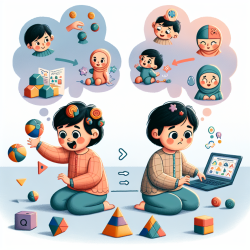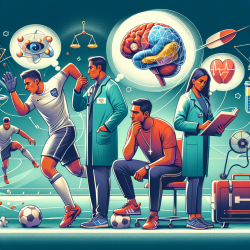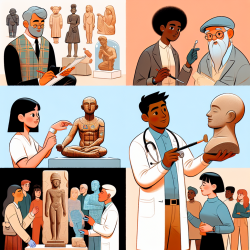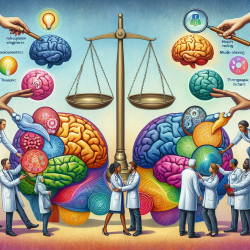Introduction
As practitioners in the field of child development and education, understanding the multifaceted components that contribute to a child's growth is crucial. A recent systematic review titled The Influence of Motor Competence on Broader Aspects of Health: A Systematic Review of the Longitudinal Associations Between Motor Competence and Cognitive and Social-Emotional Outcomes sheds light on the complex relationship between motor skills and cognitive and social-emotional development in children. This blog explores the findings of this research and discusses how practitioners can leverage these insights to enhance their practice.
The Importance of Motor Competence
Motor competence refers to the ability to perform goal-directed and coordinated motor acts, such as running and throwing, which are foundational for participating in various physical activities. The review highlights that motor competence is not only crucial for physical health but also plays a significant role in cognitive and social-emotional development. This aligns with the conceptual model proposed by Stodden et al., which positions motor competence as a mediator between physical activity and broader health outcomes.
Key Findings from the Research
- There is some evidence supporting the relationship between motor competence and cognitive outcomes, particularly working memory and attention, in pre-adolescent children.
- The research indicates a potential mediating role of motor competence in the relationship between physical activity and cognitive development, although more rigorous studies are needed to confirm this.
- Social-emotional outcomes, such as self-regulation and cooperation, also appear to be positively influenced by motor competence, especially in pre-school and pre-adolescent children.
- Task characteristics, such as the cognitive enrichment of physical activities, significantly influence the development of both motor and cognitive skills.
Implications for Practitioners
For practitioners working with children, these findings underscore the importance of integrating motor skill development into educational and therapeutic programs. Here are some actionable steps practitioners can take:
- Incorporate activities that challenge both motor and cognitive skills, such as games that require decision-making and problem-solving.
- Design interventions that provide children with autonomy and encourage exploration, as these can enhance both motor competence and social-emotional skills.
- Consider the role of environmental factors, such as access to outdoor play spaces, in promoting motor and cognitive development.
- Use assessments that capture both the process and product of motor skills to better understand a child's developmental trajectory.
Encouraging Further Research
While the current evidence is promising, there is a need for further research to fully understand the complex interactions between motor competence and broader developmental outcomes. Practitioners are encouraged to engage in or support research efforts that explore these relationships, particularly studies that consider the moderating effects of individual, task, and environmental characteristics.
Conclusion
The systematic review provides valuable insights into the role of motor competence in child development. By understanding and applying these findings, practitioners can better support the holistic development of children, leading to improved cognitive and social-emotional outcomes. To delve deeper into the original research, please refer to the article titled The Influence of Motor Competence on Broader Aspects of Health: A Systematic Review of the Longitudinal Associations Between Motor Competence and Cognitive and Social-Emotional Outcomes.










